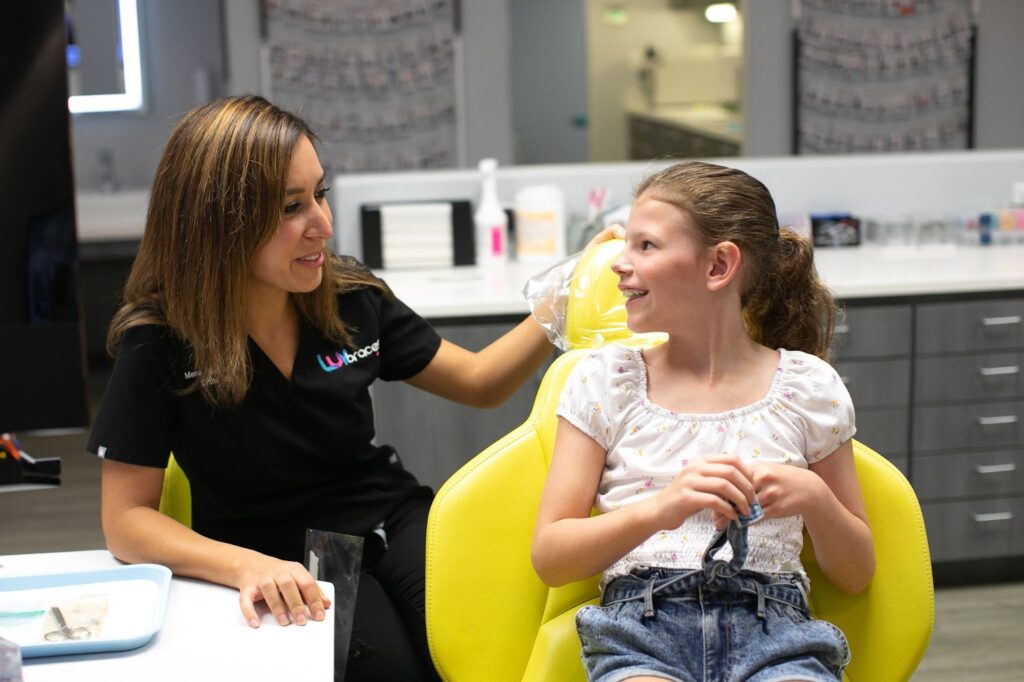Dental emergencies tend to happen when you least expect them. Whether it’s a fall on the playground or a sudden toothache before bedtime, knowing what to do can make all the difference for your child. Our team at Luv Bracesin Bee Cave is here to help parents feel prepared and confident about taking action during dental emergencies.
Some Myths About Kids’ Dental Emergencies
We want to begin by dispelling a few common rumors about this topic, because it’s important that you’re equipped with accurate information when it comes to your family’s health!
Myth: You should go straight to the ER for any dental injury.
While severe facial trauma or bleeding that won’t stop requires emergency medical care, most dental injuries are best treated by your child’s dentist. We can often see your child sooner than an ER can provide treatment. Call us first unless the injury is life-threatening or involves more than teeth.
Myth: If there’s no bleeding, it’s not serious.
Bleeding is just one sign of a dental emergency. A cracked tooth, root damage, or a hidden infection don’t always cause visible bleeding, but they still require prompt attention. If your child experiences a fall, facial injury, or complains of pain, sensitivity, or loose teeth—even without blood—schedule a dental visit.
Myth: A toothache isn’t an emergency—it will go away on its own.
Toothaches in children can be a sign of decay, infection, trauma, or gum disease. Ignoring it may cause the issue to worsen, leading to more pain, swelling, or even a dental abscess. Prompt treatment with Luv Bracescan often prevent more serious symptoms from appearing.
Myth: Ice or pain relievers are all you need for a tooth injury.
While ice packs and over-the-counter pain relievers can provide temporary relief, they don’t treat the underlying issue. A cracked tooth, nerve exposure, or infection needs professional care to heal correctly.
What Exactly Is a Dental Emergency?
Not every dental issue needs immediate care from Dr. Chan, but some situations still require urgent attention. It’s always your safest bet to contact our office if you’re remotely concerned about damage or injury.
Here are some of the most common emergencies,as defined by the American Dental Association:
- Knocked-Out Permanent Tooth: Find the tooth, hold it by the crown (not the root), and rinse it gently. If possible, try to place it back in the socket. If not, store it in milk or saliva and get to our office as soon as you can—within 30 minutes is ideal. Never try to reinsert a baby tooth.
- Loose or Misaligned Permanent Tooth: Do not force it into position. Have your child bite down gently on a clean cloth and call your pediatric dentist right away.
- Cracked or Chipped Tooth: Rinse the mouth with warm water and apply a cold compress to reduce swelling. Save any tooth fragments if possible and schedule an appointment soon.
- Object Stuck Between Teeth: Try to remove it with dental floss gently. If that doesn’t work, contact your dentist. Don’t use sharp tools.
- Toothache or Swelling: Clean the area and rinse with warm salt water. Avoid placing aspirin on the gums. If pain or swelling persists, call us to rule out infection or other issues.
- Abscess (Infection): An abscess may appear as swelling or a pimple on the gums and often comes with pain or fever. This requires urgent treatment to prevent further complications.
- Broken Braces or Appliances: Many of our pediatric dental patients go on to become our orthodontic patients, which means we can help them all in one place! Use orthodontic wax to cover any sharp edges and call Dr. Tahbazor Dr. Rezapour. Never cut wires on your own.
Toddlers vs. Older Kids: Emergency Care Differences
While the basics of emergency care are the same for all children, there are some special considerations to make for toddlers:
- Toddlers may not be able to describe pain clearly, so look for signslike drooling, refusal to eat, or irritability.
- A knocked-out baby tooth in a toddler does not need to be reinserted, but it should still be evaluated by a pediatric dentist.
- Early dental trauma can impact developing permanent teeth, so always call your provider if your toddler injures their mouth.
When The Going Gets Tough
It’s easier said than done to stay calm during one of these occurrences—but like we said, preparation and awareness are always helpful. Please do not hesitate to contact uswith any concerns or reported injuries. Luv Bracesin Austinor Bee Cavewill help you find a safe solution and will always prioritize your child’s comfort during the process.



